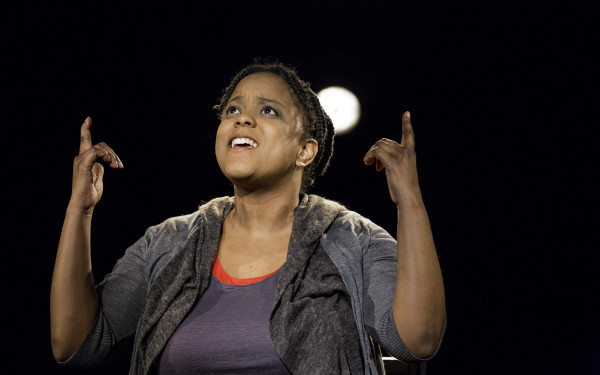The Absurdity of Conspiracy
Conspiracy is a play so strange and absurd that audience members can be heard gasping in disbelief, but still leave the theatre bearing grins from ear to ear.
Conspiracy’s plot centres around two siblings, Jane and Richard Bull, played by Alexandra Petrachuck and Dakota Wellman. The pair are sent on a mission by the eccentric Queen of England, played by Rebecca Pearl, to fake Christopher Marlow’s death and transport him to Scotland for reasons unknown.
The comedy was produced by Chocolate Moose and written by Martin Law, who originally gained press for his incredibly weird play Felix at the Montreal Fringe Festival this past summer.
Of course, plans go awry and the siblings, along with the audience, are left wondering who they can trust and why Marlow, played by Kenny Streule, is of such importance. The play moves forward and these questions only escalate as more and more theories are proposed, each trumping the last in their complexity and oddness, delving into realms of royal succession, the meaning of life and death, and the reincarnation of christ.
For the last quarter of the play, audience members are left intentionally lost and confused as they try to grasp some sort of understanding and resolve at the same time as the two main characters. The pay off is a grand spectacle guaranteed to be completely unexpected but grossly suited.
The script is packed to the brim with witticisms. Jokes come so fast that one barely has time to register the first pun before two more are thrown in rapid-fire succession and some jokes get lost. The writing is sometimes funnier than what manifests on stage and line deliveries could be improved to capitalize on the bounds of humour within the text.
Law’s script works best with many characters on stage, each interacting with high energy and commotion. He employs a Tarantino technique of long dialogue-driven scenes, continuously raising the stakes and piling on the tension, ultimately culminating in relief: ten seconds of rewarding bloody action.
The cast worked well as an ensemble, feeding off each others frantic energy and twitchy mannerisms. Most actors played multiple Monty Python-esque caricatures with convincing British and Scottish accents. One highlight: Rebecca Pearl’s Queen Elizabeth, laid back and mocking regal ceremony. With one mention of certain taboo topics, she transforms into a tyrannical ruler eager to impose cruel and unusual punishments such as death by spoon.
Petrachuk, on the other hand, commands the stage with a more serious performance as Jane. Definitely the most naturalistic of the bunch, she delivers a chilling Shakespearian monologue in the darkest, somber moment of the play. Wellman, Petrachuk’s on-stage brother, is more comically animated, and while he is funny, would tend to use his voice’s upper register whenever shocked or surprise, which became a tiring trait.
The minimal set used only black blocks and sometimes a standard table and chairs when needed, but was effective considering the many diverse location settings. The crew clearly spent great effort blocking the play and there’s never a still moment, though this usually worked well, the combination of the Mainline Theatre’s thrust stage and a full-house left some of the audience staring at the backs of actors for entire scenes.
Costumes were fantastic, filled with pomposity or humbleness, suited to the characters dawning them. For example, the Queen, placed in full royal garb, donned a corset and farthingale that made her hips jut wide so it seemed like two young children could comfortably sit on either side. The men, on the other hand, were decked in comically large codpieces, serving the over-the-top nature of the play. One note about sound design and lighting: If they go unnoticed, they’ve been well crafted. In Conspiracy, the two elements blended seamlessly into the background.
Overall, Conspiracy is wild and fun. Though there are still a few kinks that could be worked out, this journey into absurdity is thrilling the whole way through.







